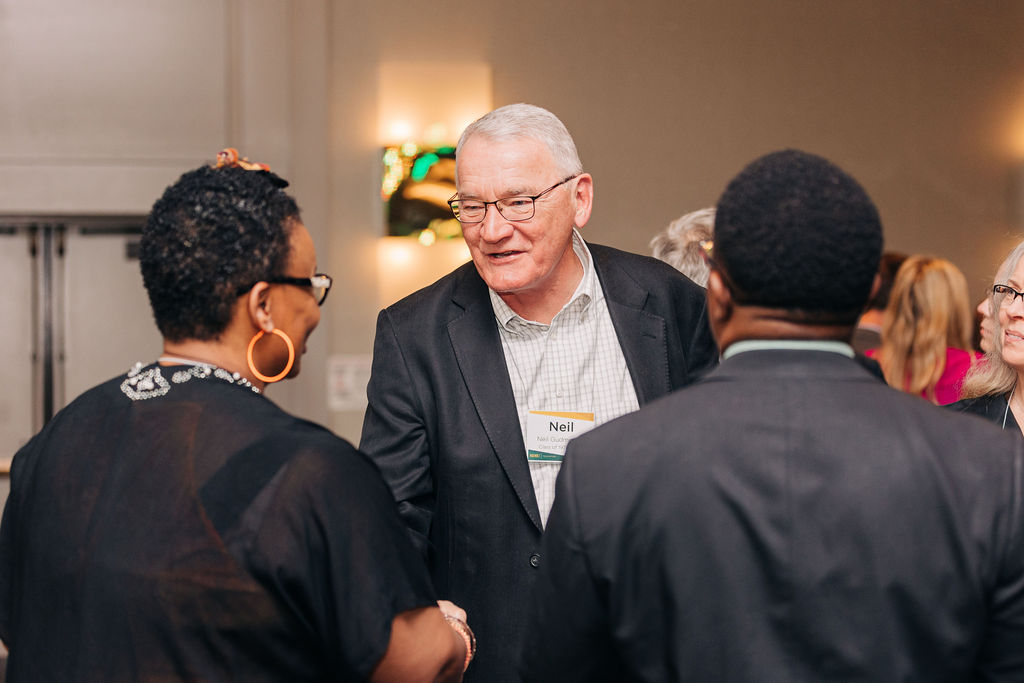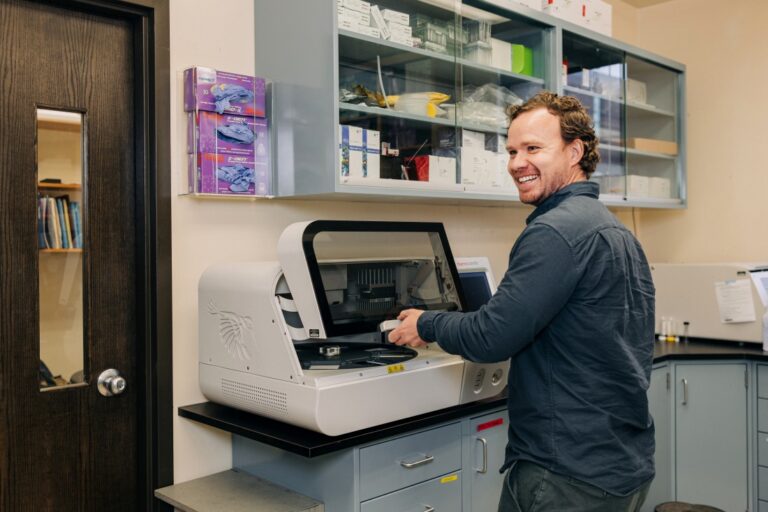Dr. Bill Wilson ’75 leverages his international network to create connections between students and the industry.
Read MoreResearching with 'One Foot in the Furrow'
Neil Gudmestad '78, '82 is the recipient of the 2023 Henry L. Bolley Academic Achievement Award, which honors individuals who have attained noted achievements in the area of education as teachers, researchers, and/or administrators.
Story by Micaela Gerhardt | March 21, 2023

On Dec. 30, 1952, a bright light woke Neil Gudmestad ’78, ’82 around 3 a.m. As his eyes adjusted to the glare, Neil looked up and saw his father standing beside his bed.
“I remember, just like it happened yesterday, my father saying, ‘Good morning, Neil. Happy birthday! You’re 8 years old today, and it’s time to go to work.'”
Neil got out of bed, put on a brand-new pair of coveralls, and went to work on his family’s small grain and dairy farm near Litchville, North Dakota. His job that morning — and every morning for the next four years — was to grind rations of grain for his father’s Brown Swiss cows, poke hay down, and carry pails of milk from the barn to the milk house, where he poured each pail into the separator.
Neil became the first member of his family to go to college, attending Valley City State University and earning degrees in biology and chemistry. After a brief stint student teaching, Neil applied to graduate school at NDSU. When he first arrived, Neil questioned whether he was cut out for the rigor of graduate school, and he nearly left. Former NDSU professor and administrator James Sugihara intervened and assured Neil that he belonged.
“Dr. Sugihara gave me confidence and also demonstrated that he cared,” Neil said. “That played out many times in my career for graduate students. They need to be encouraged and told that they’re doing a good job, and just checking up on them from time to time, especially that first year, so they know that you care.”
By applying the same work ethic he developed on the farm to his education and career, Neil proceeded to earn his Ph.D. in plant pathology from NDSU and began working as a plant pathologist for the North Dakota State Seed Department. He joined NDSU faculty in 1985 and went on to become a world-renowned potato pathologist, recognized for his expertise in academia as well as in the industry.
Over the course of his career, Neil has cultivated an expansive research portfolio dedicated to the management of more than 22 potato diseases, including fungicide resistance, bacterial diseases, and invasive pathogens such as zebra chip and potato mop top. His pioneering research is guided by his philosophy, “one foot in the furrow.”
“Since I grew up on a farm, my research emphasis was always to develop disease management strategies and tactics to control potato diseases, taking basic research and having an application for it in farming,” Neil said. “That’s the ‘foot in the furrow’ idea.”
In 2015, Neil led fundraising efforts to establish the Neil C. Gudmestad Endowed Chair of Potato Pathology, which became the first fully endowed faculty position at NDSU. He was named the inaugural holder until his retirement in 2020, when the title passed to his successor, Julie Pasche. In conjunction with advocating for the endowed chair, Neil also secured nearly $17 million in grant funding to advance his research program at NDSU during his academic career.
Neil’s research is cited and celebrated around the globe. His many honors and achievements include, but are not limited to, being named a University Distinguished Professor at NDSU; a fellow of the American Phytopathological Society, an international scientific organization devoted to the study of plant diseases; and, notably, a “50 for 50” Honoree by Potato Grower, which recognized “50 of the potato industry’s most innovative and influential individuals, companies, and organizations over the past half-century.”
“I think those awards are testaments to the impact my research program had. I want to emphasize one thing — I don’t have much going for me other than my work ethic,” Neil said. “The thing I was always able to do, I think, was to identify those people who are self-starters and who are really intelligent and hard-working — they’re the ones who made me look good.”
Share This Story
Related Stories
Agriculture’s Miracle Bacteria
With support from Richard '65 and Linda Offerdahl, NDSU researchers are working toward a new evolutionary event that will reduce the cost...
Read More
